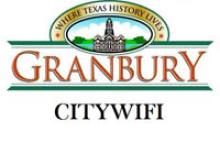
Fast, affordable Internet access for all.

In the place where “Texas history lives,” the City of Granbury followed a fellow Texas city in delivering a Tropos wifi system that covers all 10 square miles of the city. Less than a decade ago, Granbury had no functional IT department and after hurdles with a private public partnership, established a functional and successful publicly-owned wireless network. Initially created to support city functions and mobile police, the network is available to the public, elevating the rural town outside of Fort Worth to the mobile age.
When Granbury hired IT Director Tony Tull in 2003, the technology capabilities of the city were dire: no staff, a budget of $6,000, and only two buildings with access. Tull quickly brought city and council officials on-board to his ambitious technology plan to deploy wireless WAN to all city buildings in partnership with their existing ISP, Texas-based Frontier Broadband (now acquired by KeyOn). The initial needs were to equip city personnel with mobile access which focused on police officers, firefighters, and city inspectors.
Other goals included general public and tourist broadband access, reading utility meters, perform live web casts, and connect to nearby governmental networks. After the City received a Homeland Security grant, $70,000 was earmarked to outfit over 10 police vehicles with wireless laptops. In 2004 Tull attended the Public Technology Institute’s National Summit for Local Governments in Corpus Christi where he reviewed the city’s 147 square mile wireless network by Tropos. Convinced the technology was right, Granbury deployed a test run of 40 routers across half the city and eventually 100 more to cover the roughly 10 square miles.
Unfortunately, Granbury’s private partner did not respond to network performance problems as quickly as the city would have liked. In March 2007, the city bought the 10-square-mile network for $225,000 to maintain more control over its performance. The Granbury wireless network is now live with the city managing it and selling service to the public. “Be careful how you pick your partners,” Tull said. “Things that are a problem for you may not be a problem for the provider.”
“Is subscription sales the only way our municipality is going to see a return on our $500,000? Not really. We see other benefits. Police on the street longer because they can do their reports from the cars rather than the squad room. More information to our firefighters before they make scene on a possible structure fire. AMR project. Tourist access to city wide internet. These are all hard dollar and soft dollar returns that are real.”
